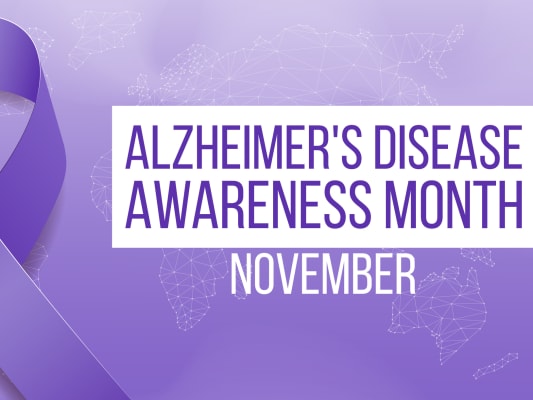Battling Alzheimer’s

Earlier this year, a popular announcer on the Golf Channel and NBC Sport died at age 66 of Alzheimer’s disease. It’s a disease Tim Rosaforte fought for two years.
Alzheimer’s is the most common cause of dementia, and it causes problems with memory, thinking and behavior. Despite medical research, there is no cure, but there are treatments that can temporarily slow the worsening symptoms and improve quality of life.
Symptoms often develop slowly, getting worse over time. It’s not normal aging. It’s a disease, and recognizing the symptoms of Alzheimer’s is key to ensuring that appropriate care is received.
What to watch for
The following are possible signs of Alzheimer’s disease:
- Difficulty processing and remembering information
- Deepening confusion about events, time and place
- Routinely getting lost or having trouble completing routine daily activities, such as brushing hair, cooking or swinging your golf club
- Noticeable changes in mood, appearance or behavior
- Unfounded suspicions about family, friends and personal caregivers
- Difficulty speaking, swallowing and walking
If you or a loved one notice any of these signs, talk to your primary care provider. They may end up referring you to a geriatrician or a neurologist.
Diagnosis
Medical providers may use a combination of tools to determine if a person has Alzheimer’s disease. For example, they will likely talk to that person and a family member or friend. They may also test a person’s memory, problem solving abilities, attention, counting and language.
Sometimes, a medical provider will request imaging, and Middlesex Health has positron emission tomography (PET) scans and other diagnostic tests that can be used to support an Alzheimier’s diagnosis. It could also rule out other issues that may be causing a problem.
Other important information
We still have much to learn about Alzheimer’s, but we do know that the greatest risk factor is age. Most people with Alzheimer’s are 65 and older, though Alzheimer’s can affect someone younger.
In its early stages, memory loss is mild. However, over time, individuals with Alzheimer’s lose the ability to do a number of basic tasks. For example, they may no longer be able to carry on a conversation or feed themselves.
“Individuals who have Alzheimer’s will need help, and difficult decisions will need to be made,” says Millicent Malcolm, a geriatric nurse practitioner with Middlesex Health Primary Care - Middletown. “Loved ones will also need support. It isn’t an easy road.”
Raising awareness of Alzheimer’s disease is the first step in helping everyone, Malcolm says. November is Alzheimer’s Awareness Month, and she says it’s the perfect time to remind yourself of the symptoms and to evaluate your situation if you or a loved one are battling Alzheimer’s disease. “Information is power,” Malcolm says. “Knowing what to look for and when to get help is half the battle.”
Featured Provider

Millicent M. Malcolm, DNP, GNP- BC, APRN
Specialties / Areas of Care
- Family Medicine
Locations
- Middletown, CT
860-358-3130
- View Full Profile
- Watch Video
- Existing Patients Only
Schedule an Appointment
Existing PatientsMore Stories
Beware of the Mosquito!
It’s common to find mosquitoes on the golf course, especially in the brush, in wooded areas or near water, and they can be a nuisance — and a health risk.
Making a Difference One Golf Swing at a Time
June was a busy month for Middlesex Health. In addition to providing excellent care every day for patients, celebrating Pride Month and marking Juneteenth, the health system was at the golf course supporting the community!